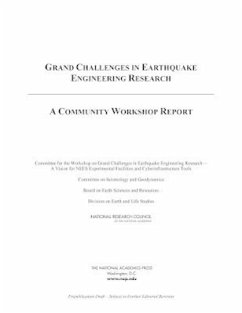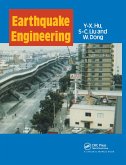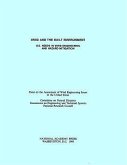As geological threats become more imminent, society must make a major commitment to increase the resilience of its communities, infrastructure, and citizens. Recent earthquakes in Japan, New Zealand, Haiti, and Chile provide stark reminders of the devastating impact major earthquakes have on the lives and economic stability of millions of people worldwide. The events in Haiti continue to show that poor planning and governance lead to long-term chaos, while nations like Chile demonstrate steady recovery due to modern earthquake planning and proper construction and mitigation activities. At the request of the National Science Foundation, the National Research Council hosted a two-day workshop to give members of the community an opportunity to identify "Grand Challenges" for earthquake engineering research that are needed to achieve an earthquake resilient society, as well as to describe networks of earthquake engineering experimental capabilities and cyberinfrastructure tools that could continue to address ongoing areas of concern. Grand Challenges in Earthquake Engineering Research: A Community Workshop Report explores the priorities and problems regions face in reducing consequent damage and spurring technological preparedness advances. Over the course of the Grand Challenges in Earthquake Engineering Research workshop, 13 grand challenge problems emerged and were summarized in terms of five overarching themes including: community resilience framework, decision making, simulation, mitigation, and design tools. Participants suggested 14 experimental facilities and cyberinfrastructure tools that would be needed to carry out testing, observations, and simulations, and to analyze the results. The report also reviews progressive steps that have been made in research and development, and considers what factors will accelerate transformative solutions.
Bitte wählen Sie Ihr Anliegen aus.
Rechnungen
Retourenschein anfordern
Bestellstatus
Storno






